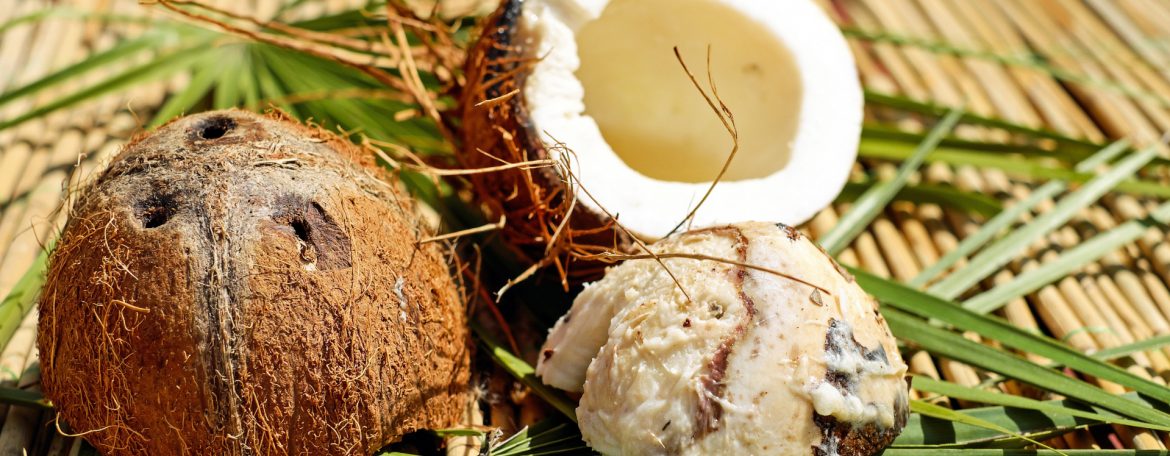Global coconut market demand is at an all-time high and projected to grow exponentially over the next ten years. Increasing awareness of its health benefits, rising applications in the food and beverage industry and the launch of new products has led to wider market penetration.
While the Caribbean has tremendous potential to become an active competitor in the global coconut marketplace, its pace of growth has been compromised by aging plantations, lack of quality planting material, prevalence of pests and diseases, compounded by investment, financial and technological constraints. Recognising the potential of the industry, the International Trade Centre (ITC), the Caribbean Agricultural Research and Development Institute (CARDI), and the Inter-American Institute for Cooperation on Agriculture (IICA) virtually signed a Letter of Intent to facilitate the joint strengthening of development efforts in the regional coconut industry.
Expanding on the potential benefits of this initiative, William Castro Rodriguez, International Consultant, ITC stated, “This collaboration will help us to improve our implementation on the ground, scale up and help us align our policies in the region to support farmer organisations, and to expand coconut production and commercialisation. We are very sure that this will help us to reduce the risk of investing in value chains by collaborating with policymakers, buyers, financial institutions, and other organisations that will help to increase the capacity of smallholder farmers. We continue to pledge our support to continue promoting integrated value chains into the Caribbean.”
The ITC and CARDI have combined their efforts to implement the project, ‘Alliances for Coconut Industry Development Expansion and Enhanced Support for the Caribbean.’ This project aims to enhance the competitiveness of small-scale farmers in coconut value chains through better local, regional, and global market integration and production performance. The institutions are implementing the project under the Alliances for Action model which promotes inclusive and sustainable agricultural value chains while ensuring compliance with environmental, economic, and social requirements. A key objective of the Coconut Project is the creation and reinforcement of food safety standards and strengthening of sanitary and phytosanitary (SPS) and quality compliance systems.
Financed by the European Union under the 11th European Development Fund (EDF) Programme, with oversight by the CARIFORUM Directorate, Phase 2 of the project ends in 2023. Ansari Hosein, Manager, Science, Technology and Innovation, CARDI explained, “The course of action being pursued today will maximise the use of resources that are made available by preventing duplication of activities. We look forward to this alliance which identifies clear opportunities for synergies between projects to deliver real action and real results to the agricultural communities of this region, so that in time we can speak of this alliance in the context of being a true success story which created long lasting positive impacts.”
IICA is the executing agency for the Sanitary and Phytosanitary (SPS) Measures Project which is one component of the 11th EDF Programme “Support to CARIFORUM States in furthering the implementation of their Economic Partnership Agreement (EPA) commitments and in meaningfully reaping the benefits of the Agreement.” The objective of this Project is to facilitate CARIFORUM Countries to gain and improve market access by complying with Europe’s SPS measures and to help CARIFORUM states to better develop their own regionally harmonised SPS measures.
The 11th EDF SPS Measures Project which forms the basis of this alliance is an important action for the Caribbean, not only in terms of expanding into markets internationally but also it is one that contributes to transforming the regional food sector for improved food and nutrition security. Ana Marisa Cordero, Acting Head, Agricultural Health, Food Safety and Food Quality Program, IICA said, “The project’s specific work on developing the coconut industry includes the provision of technical assistance to private sector organisations in the areas of training and guidance in key aspects of food safety, innovation, they also upgrade laboratories to undertake tests that are required for the marketing and trade of coconut and coconut products.”
In the Letter of Intent, the Signatories acknowledged the importance of cooperation in the following
areas of activity:
i. Knowledge management and information dissemination relating to the development of the agri-
food system; in particular, the coconut industry;
ii. Establishment of responsible and inclusive public-private production and commercialisation
connections with Alliances for Action partners;
iii. Capacity building activities in the areas of production and processing; and
iv. Strengthening systems for improved SPS compliance in the Caribbean.
These interventions will contribute to an increased capacity for exports, increased trade and economic development, increased compliance with international obligations and improved market access and a reduction in food safety related incidents. Cordero stated, “The partnership with the ITC and CARDI will further assist IICA to achieve the benefits of the rationalisation of resources to scale up interventions to reach a larger number of stakeholders and hence, have a greater impact on livelihoods along the region’s coconut supply chain.” For more information, visit: https://www.edfspscariforum.online/


